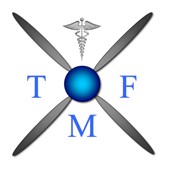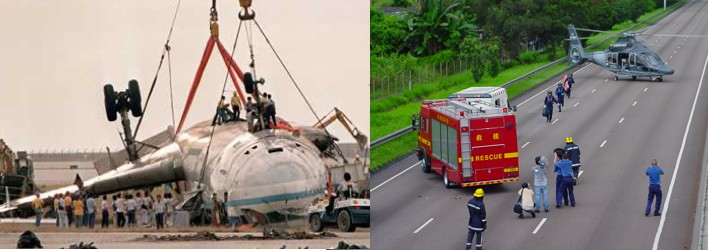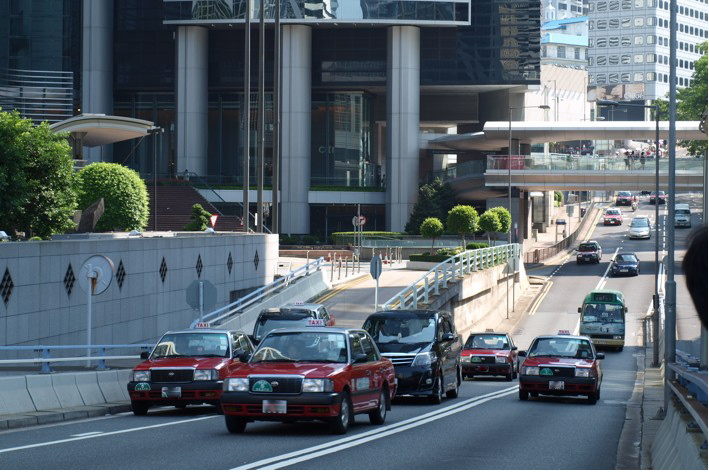|
 |
| |
Mission Statement
The Transport Medicine Foundation seeks to engage with government and industry
in order to avert transport accidents caused by human factors and preventable medical conditions, and assure effective responses
when such incidents do occur. The Foundation pursues this mission
through the production of members’ research and reports led by medical, legal and industry experts. These reports consider
various aspects of accident causation, prevention and response, produced with the aim of furthering knowledge and stimulating
debate in these areas. The Foundation seeks to promote education and research in the field of transport medicine, and to facilitate
the closer engagement of all parties involved in producing effective policies aimed at improving safety across all forms of
transport.
Our Vision The Transport Medicine Foundation has
established a number of stages by which it aims to develop in the coming years: 1) To inaugurate itself
as a Web-based community of interested members, sharing knowledge and co-operating in the production of strategy and reports. 2) To establish a charity
based in Hong Kong, which will seek to promote education and research and engage all parties in the drafting of good
practice advice and necessary legislation.
3) To expand internationally, bringing in new members and establishing links with government and
industry overseas, to continue the pursuit of the Foundation’s overall aims.
The
Aerospace Medicine Group The Transport Medicine Foundation seeks to build on the achievements of the
Aerospace Medicine Group of the Faculty of Medicine, Chinese University of Hong Kong. Formed in 2005, this group has succeeded
in producing a well-regarded body of original research papers in the field of aerospace medicine. The TMF seeks to extend
the same combination of innovation and expertise to other fields of transport medicine.
For a collection of articles and abstracts produced by the Aerospace Medicine
Group, please email us at admin@transportmedicine.org 
What is Transport
Medicine? Transport Medicine deals with all aspects of the interaction between humans and vehicles from
the design stage to operational use. Learning from failures and accidents is crucial to improving design in transport systems. The medical and psychological fitness
of an operator to drive or pilot a public transport vehicle is a fundamental pre-requisite for safety. This aspect is a cornerstone
of Transport Medicine, but the specialty also studies closely the effects of different transport environments on human occupants.
Transport modes undreamt of a century ago are becoming available to ordinary citizens – the high altitude rail line
from China to Tibet and the imminent prospect of commercial passenger travel into Space being just two examples. Despite the
potential extreme threats to wellbeing, an increased range of passengers, irrespective of their state of health, will be able
to use these services. Less
obviously, ordinary scheduled commercial air travel has important effects on human physiology, and passengers with health
problems require careful assessment. The safe transport of sick and injured patients to and between hospitals forms a further
important aspect of Transportation Medicine. The Scope of Transport Medicine
Transport Medicine encompasses the following
areas of study: - Health Assessment and Certification of Crew
- The assessment of the fitness of air
pilots, vehicle drivers and ships’ masters, and their official medical certification
- The health and fitness
of other safety-critical staff (e.g. Air Traffic Controllers) operationally involved in transportation.
- Health of Crew and Passengers
- Crew and Passenger Fatigue
- The effects of the Environment
on Crew and Passengers
- The health impact of Cosmic Radiation and UV light
- Deep Vein Thrombosis
- Transport Accidents
- Human Factors in Transport
- Transport Accident Investigation
- The medical management
of Major Incidents and Disasters
- Transportation of Patients
- Ambulance Transport, including Land,
Sea and Air
- Inter-hospital Transfer of Patients
- Search and Rescue Operations
- Crime and Terrorism
- The medical and psychological
effects of Crime and Terrorism in Transportation (including post-traumatic stress)
- Drugs and Alcohol
- Drug and Alcohol legislation
and the design, monitoring and enforcement of preventative programmes in transport
- Crew Resource Management
- Crew Resource Management
(the training of safety-sensitive operating staff in mitigating the causes and effects of human error)

Transport Medicine and Hong Kong A safe and efficient transport system
is key to Hong Kong’s role as an international travel and trade hub, and strong public confidence in these aspects is
crucial. Compared with other territories, Hong Kong has maintained a good but not flawless record of transport safety. Fortunately,
past disasters have generally resulted in limited loss of life and injury, but there is no room for complacency as the roads,
airways, seaways and railways become busier. Among the challenges on the ground will be the ever-increasing volume of cross-border
lorry, car and bus traffic, and the plans for a new bridged road link to Zhuhai and Macau will create new issues for the Emergency
Services. Similarly, the aviation industry is expanding rapidly, placing stress on existing infrastructure. Bad weather over
the 2008 Chinese New Year has shown the human impact of vulnerable rail links to mainland China, and Hong Kong continues to
compete fiercely for its share of an expanding marine cargo market and tourist industry.
Public perception of
transport safety remains positive but fragile. When asked, most Hong Kong people will readily recall the China Airlines accident
of 1999, the Tuen Mun Road bus crash of 2003, and the grounding of the Mui Wo ferry Xin Jie in
2006. Crucially, Human Factors, including medical incapacitation in the last case, were represented as the primary cause of
each of these accidents. 
|
|
|